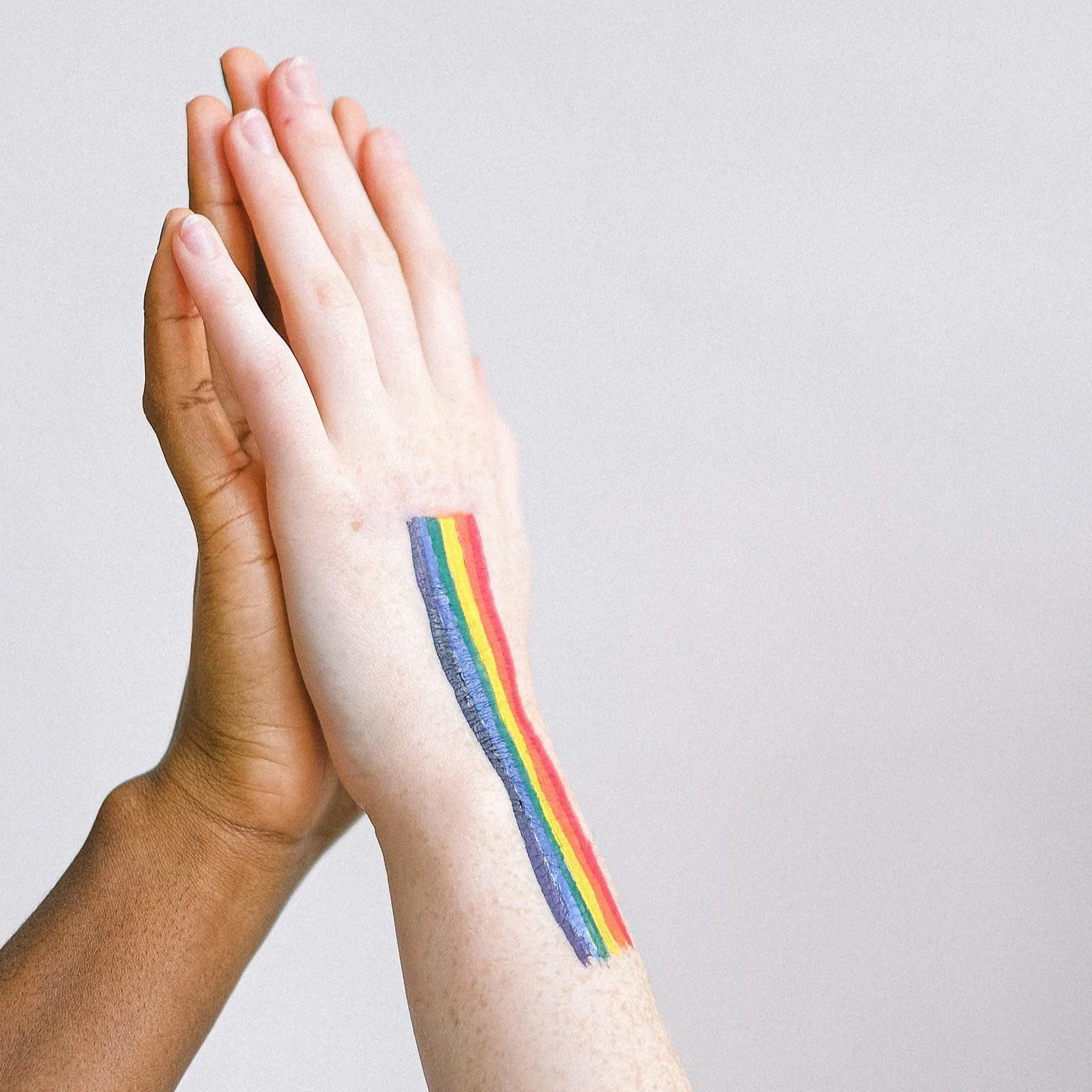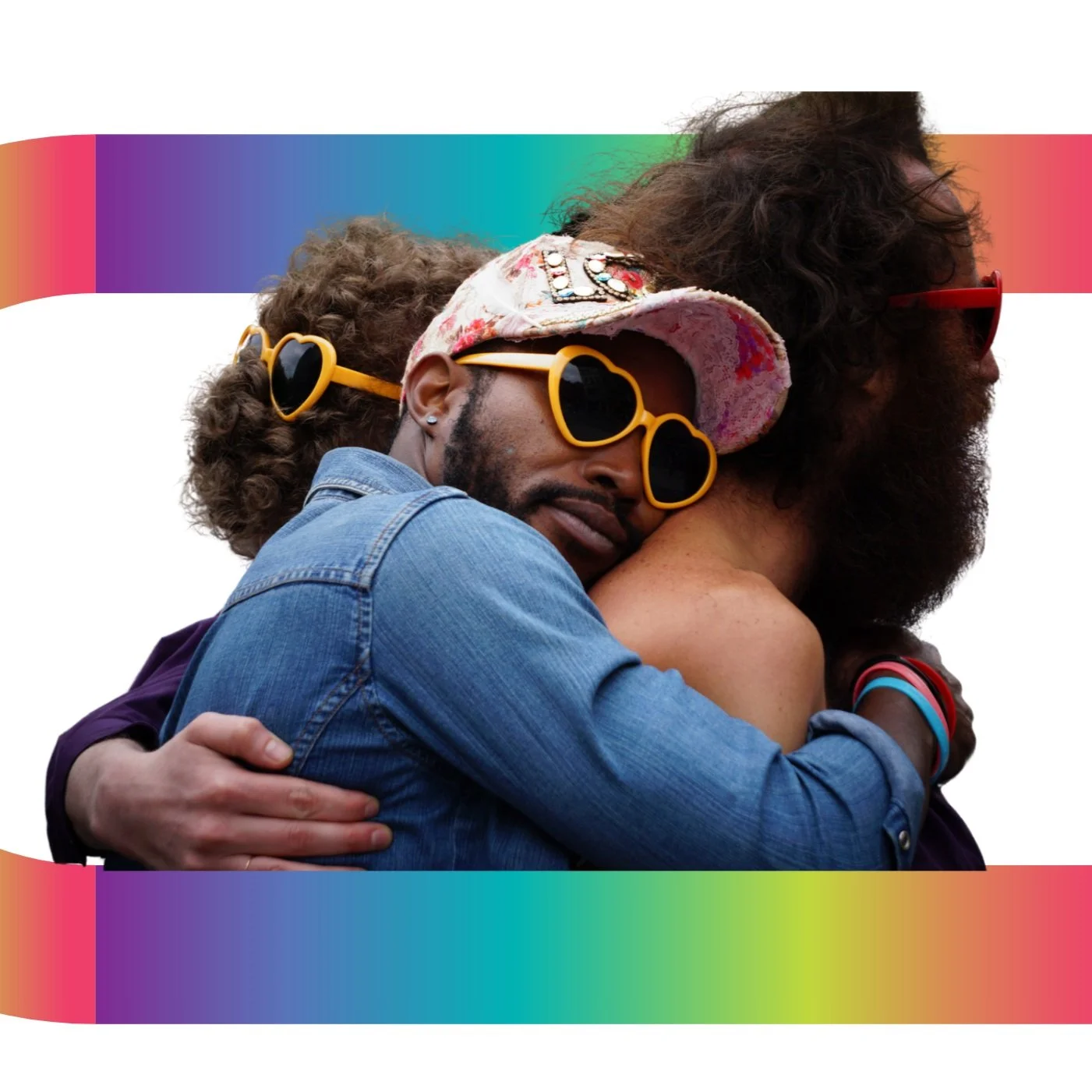Meet Your New Therapist:
Max Casero, LCSW-S
Hello and welcome! I’m so glad you’re here.
My name is Max Casero (they/them), and I’m an ambiverted queer ADHD therapist / parent / spouse / entrepreneur / social activist and human in Austin, Texas. I love the feeling after a good haircut, Sci-Fi and fantasy novels (the more epic, the better), creative punctuation, exercise of most types and music of all sorts – and I have a habit of starting projects that take years to finish, all the while justifying them as “really enjoying the process.”
One of those projects just happens to be Prism Integrated Health.
After working with a metric ton of queer neurodivergent folks – and then getting an adult diagnosis myself – I’ve learned that I have to be passionate about and invested in how I spend my time if I’m to stay engaged with what I’m doing.
Through a lot of trial and error – and with even more luck (also white privilege), I managed to create a therapy practice that speaks to all of my passions and interests: accessible and authentic mental health care for queer people by queer and allied practitioners.
Back in 2015/2016, getting started was daunting, and my imposter syndrome was real. After growing up in a small, conservative town, I wasn’t sure I’d be able to attract clients as an out and proud queer, nonbinary therapist in Texas. I also wasn’t sure it was safe.
However, I was done making myself small and palatable; the time for masked assimilation was over. I left a near decade-long career in the nonprofit world, and made it my goal to develop a therapy practice in which every single client learns that they are worthy of love and belonging.
Certainly, Prism has undergone a lot of change since 2016 – and so have I. I became a parent twice over, lost a parent to cancer, got diagnosed with ADHD, and became a spouse – just to name a few. With every new phase of my life, my own practice as a therapist and business owner has grown and deepened.
Currently, I’m in my Turtle as a Crossing Guard Era, which I characterize as:
Slowing down to learn and develop my professional skill and personal interests intentionally
Looking both ways and then looking again to notice my blind spots
Conserving my energy and directing it toward my priorities
Sitting in the discomfort of urgency in order to create the time and space necessary for discernment
Granting myself the grace, liberation, and celebration of never fitting in
No matter the era, though, my mission as a therapist and practice owner remains constant: to create a space in which we unlearn shame and self doubt and grow to identify, acknowledge, and appreciate our own inherent value.
And so here we are: me, a therapist, and you, at the end of this captivating profile.
Whether it’s trauma, queerness, neurodivergence, parenting while reparenting, or working on your relationship(s), my favorite part of being a therapist and developing this practice is walking with you on your unique journey toward self-worth, self-compassion, and self-love – ultimately, helping you find your inner belonging.
Clinical Specialties:
Current Groups:
What the Actual Eff?! (A weekly drop-in process group)
Private Pay: $200
Insurance: Aetna, Cigna, Medicaid & Medicare, Tricare Certified (ONN benefits)
Upcoming Insurance: Optum, BCBS, Quest, Carelon,
Schedule your FREE 15 minute consultation here!
Max Casero, LCSW-S introduces their therapy style as relational and skills-oriented. They specialize in the LGBTQIA+ community, managing life transitions, ADHD, Autism, and AuDHD.
Therapy & Coaching Services
$150-$250
Life is overwhelming, but you don’t have to navigate it alone. Whether you're struggling with anxiety, depression, trauma, or life transitions, therapy with Max offers a space to process, heal, and build the life you want—at your own pace, with real support.
$165-$250
Relationships are complex, and communication can be hard—especially when past wounds, neurodivergence, or big life stressors are in the mix. Couples therapy helps you and your partner navigate conflict, deepen connection, and create a relationship that works for both of you.
$165-$250
Family dynamics can be messy, but they don’t have to be impossible. Whether you're navigating neurodivergence, parenting struggles, or generational patterns, family therapy provides a space to untangle conflict, improve communication, and foster real understanding.
$150-$250
Sometimes, you don’t need ongoing therapy—you just need one powerful conversation to get unstuck. In a single session, we’ll tackle what’s weighing on you, find clarity, and map out tangible next steps.
$150-$250
ADHD isn’t just about focus—it’s about how you move through the world, manage emotions, and tackle the demands of daily life. Whether you’re looking for therapy to process the emotional toll of ADHD or coaching to build structure and momentum, we’ll work together to create strategies that actually work for you.
Price Variable
You’re a big-picture thinker with unstoppable ideas, but ADHD can make execution feel impossible. Coaching helps you harness your strengths, develop sustainable systems, and step into the kind of leadership that feels both effective and aligned.
$650 for 6 sessions
Parenting an ADHD teen is a rollercoaster—one that doesn’t come with a manual. Coaching gives you the tools, strategies, and support to show up for your kid with confidence, clarity, and connection.
$35
Life (and the world) can be an absolute mess, and sometimes you just need a space to process it all with people who get it. This drop-in group is a no-BS, judgment-free zone where you can vent, reflect, and find support in community.
Follow Prism on Insta
Contact Max
Interested in working together? Fill out some info and I will be in touch shortly. I can’t wait to connect!










